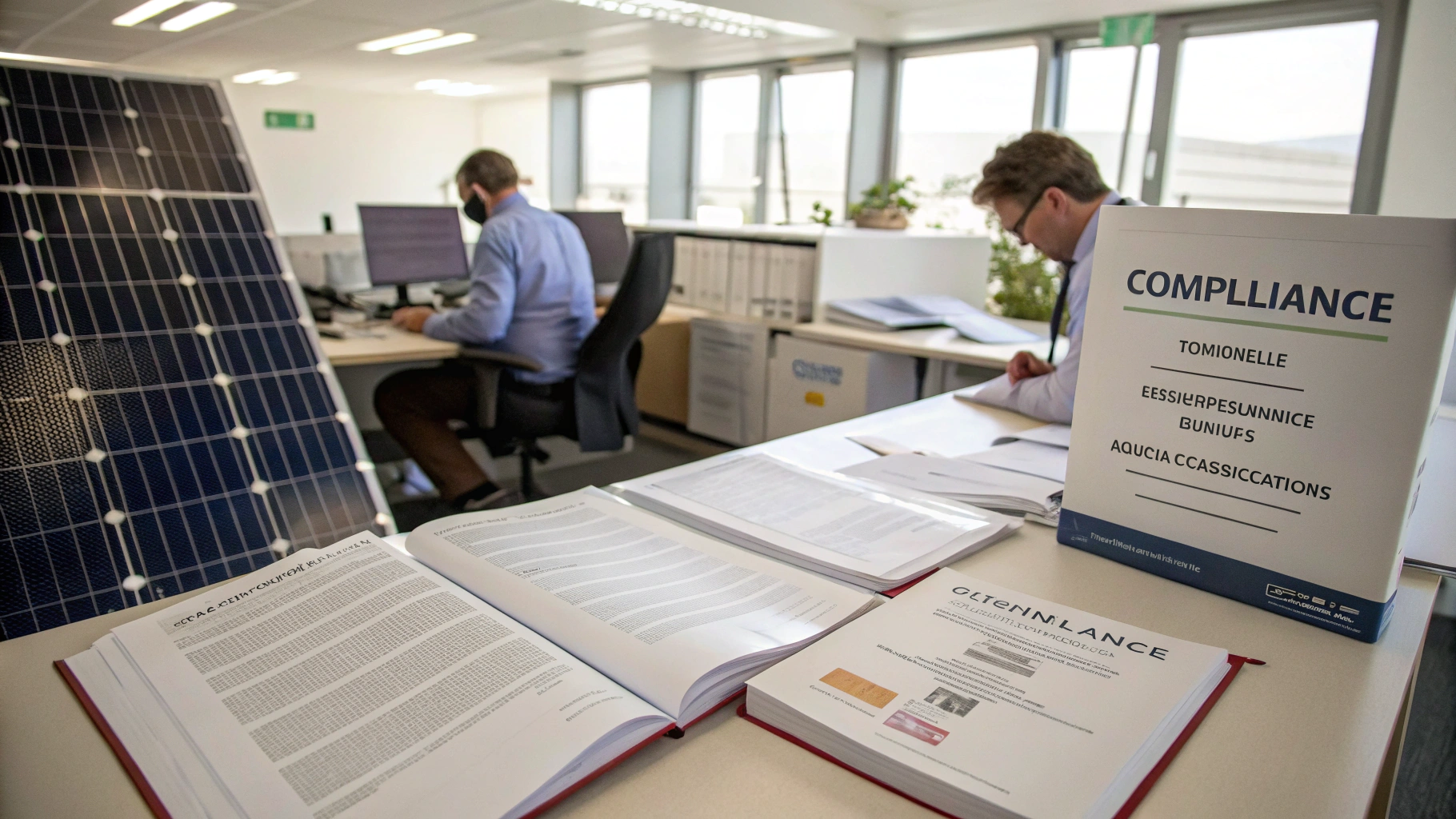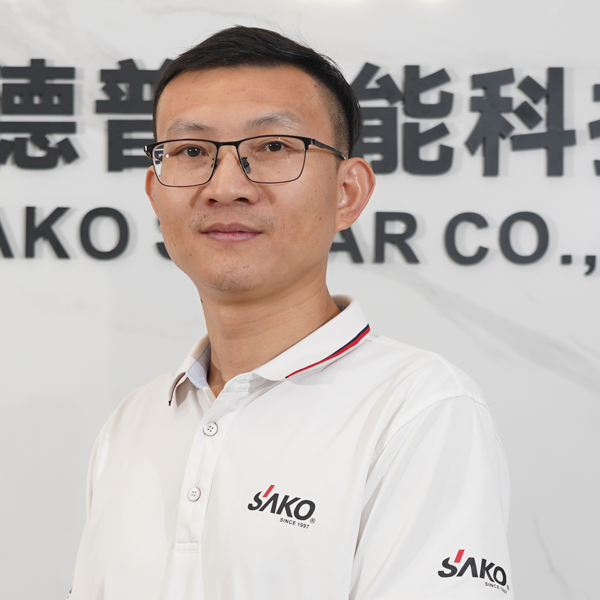
When the idea of becoming a solar panel distributor first crossed my mind, I felt an exhilarating mix of excitement and a touch of overwhelm. This industry brims with potential, yet it demands a profound understanding and meticulous preparation. As I delved deeper, it became clear to me that there are several pivotal steps that lay the groundwork for success.
To begin with, I dedicated considerable time to self-education, ensuring I had a comprehensive grasp of how solar energy and solar panels function. My next focus was on dissecting the complex legal and regulatory landscapes, understanding that compliance is the cornerstone of steering clear of any legal entanglements. Just as I had anticipated, forging strong relationships with reputable solar panel suppliers was absolutely crucial; it guarantees that I can deliver top-notch products to my customers.
Crafting a robust business plan was instrumental in clarifying my commercial objectives and market strategies. To bolster my credibility in the industry, I pursued NABCEP certification, which significantly enhanced my standing among peers and customers alike. Last but not least, I recognized that prioritizing exceptional after-sales service plays a vital role in fostering long-term customer relationships.
These foundational steps have been my launching pad into the realm of solar panel distribution. If you find yourself intrigued by this path, I wholeheartedly encourage you to embark on this journey filled with opportunities. Understanding the essential steps to navigate the solar panel distribution sector—self-education, legal compliance, supplier relationships, business planning, certification, and after-sales service—is the key to paving your way to success.
I truly hope this inspires you. Take that leap of faith and kickstart your solar business today!
You do not need to understand legal regulations to distribute solar panels.False
Understanding legal compliance is crucial to avoid legal issues in business.
Pursuing NABCEP certification can enhance your industry credibility.True
NABCEP certification boosts your standing among peers and customers significantly.
2. What Legal and Official Compliance is Required?
3. How to Build Connections with Suppliers?
4. Why is Certification and Licensing Crucial?
5. How to Develop an Effective Business Plan and Marketing Strategy?
6. What Post-Sale Services Ensure Customer Satisfaction?
7. Conclusion
What Steps to Begin as a Solar Panel Distributor?

Embarking on my odyssey to become a solar panel distributor was nothing short of a transformative experience, marked by a profound yet overwhelming wave of uncertainty. With an innate desire to immerse myself in the renewable energy sector, I found myself ill-prepared for the intricate labyrinth of distribution that lay ahead. This venture was not merely a business endeavor; it was akin to joining a movement, where every turn unveiled a lesson waiting to be learned.
Initially, I plunged headfirst into the realm of self-education. This endeavor encompassed a spectrum of knowledge, spanning from the foundational concepts of solar energy to the diverse types of solar panels and their respective applications. This enriching educational journey served as my essential bedrock, equipping me with the insights necessary for making astute decisions and delivering real value to my potential customers.
The next formidable challenge was grappling with the realm of legal and regulatory compliance. Wading through the legal intricacies felt like navigating a colossal maze. Yet, through meticulous research and persistence, I managed to untangle the complexities surrounding the licenses and permits vital for maintaining the integrity and legality of my distribution business.
Engaging with suppliers and nurturing relationships with esteemed panel manufacturers emerged as critical components in my quest. My objective transcended simply distributing panels; it was about cultivating a reputation centered on reliability and quality by ensuring I was only offering certified products.
Crafting a comprehensive business plan was another pivotal milestone. I meticulously analyzed my target market and carved out distribution channels, incorporating financial projections and a strategic roadmap that would guide me from an abstract idea to concrete execution.
Securing financing became the lifeblood of my venture, allowing me to anchor my dream with substantial financial support. I explored a variety of sources, from personal savings and business loans to potential partnerships with investors willing to believe in my vision.
Registering my business and selecting a strategic location constituted equally critical steps. These choices were driven by logistical considerations, ensuring proximity to suppliers and transportation hubs, thus facilitating seamless operational flow.
Marketing emerged as my canvas for creativity. Through well-thought-out campaigns, I showcased my offerings, providing complimentary estimates and on-site analyses for prospective clients, dynamically illustrating the myriad benefits inherent in solar energy systems.
A focus on efficient inventory and logistics management enabled me to streamline the adoption of solar technology, guaranteeing that customers received exceptional service. This commitment extended to after-sales support, where prioritizing the establishment of dependable customer service channels and warranty mechanisms took center stage.
Lastly, upholding professional standards through high-quality installations and actively soliciting customer testimonials became instrumental in fortifying my brand and amplifying the message of solar energy’s advantages to a wider audience.
Navigating the path to becoming a solar panel distributor requires a multifaceted approach: engaging in self-education, ensuring legal compliance, building supplier alliances, securing funding, and employing robust marketing strategies—all tailored toward successfully traversing the industry landscape.
I trust that sharing the intricacies of my personal journey may illuminate your path. Embrace this opportunity, venture forth, and discover the boundless rewards that await in this remarkable field.
What Legal and Official Compliance is Required?

When I embarked on the journey to become a distributor of solar panels, I found myself initially engulfed by the intricate maze of legalities and compliance mandates. The task of deciphering the myriad regulations within this industry appeared extraordinarily intimidating. I experienced a whirlwind of emotions—an exhilarating blend of enthusiasm and trepidation. My quest was no longer confined to mastering the technical dimensions; it demanded the navigation of a complex landscape filled with official requirements. In that pivotal moment, it dawned on me that achieving success as a distributor transcended mere sales; it hinged upon a profound understanding of the subtleties entwined in compliance.
Determined to excel, I immersed myself in an enlightening exploration of the legal frameworks necessary for thriving in this field. I delved into a spectrum of topics, from environmental obligations to the intricacies of financial and safety regulations. Each nugget of information I acquired bolstered my self-assurance. A cornerstone of this endeavor was the establishment of robust internal compliance protocols. I recognized the necessity of implementing meticulous record-keeping practices and nurturing a culture of compliance throughout the organization.
To encapsulate this experience, one essential truth emerged: “Becoming a solar panel distributor requires an adept understanding of regulatory requirements, the establishment of internal compliance mechanisms, and the cultivation of a compliance-centric culture to guarantee legal observance and operational success.”
By embracing compliance as a vital element of the business framework, I uncovered pathways that allowed me to not merely meet but surpass industry benchmarks. If you find yourself contemplating a similar journey, as I once did, I wholeheartedly urge you to view these compliance structures not as hurdles to overcome, but as ladders propelling your business credibility and sustainability to new heights. Are you prepared to metamorphose your dreams into a tangible reality? Immerse yourself, grasp the nuances, and articulate these strategies to facilitate a smooth entry into the realm of solar panel distribution. I trust this insight will illuminate your path forward!
How to Build Connections with Suppliers?

Embarking on my journey into the realm of solar energy, I quickly recognized the pivotal role that robust supplier relationships play in this industry. Becoming a solar panel distributor transcends the mere act of sourcing reliable suppliers; it hinges on cultivating and nurturing trust through proactive communication and collaborative efforts. I vividly recall the initial sense of overwhelm, as I strived to ensure that every agreement was characterized by transparency and mutual benefit. This experience initiated my quest to foster connections at every level of the supply chain.
A significant strategy I uncovered was the commitment to transparency coupled with consistent communication. By establishing a robust feedback loop that catered to the needs of both suppliers and customers, I was able to facilitate an uninterrupted flow of information, thereby building trust. Meetings evolved from mere formalities into invaluable opportunities for deep engagement, transforming suppliers from ordinary vendors into trusted allies in business.
Throughout this journey, the integration of technology surfaced as essential—streamlining operations and enhancing efficiency, which in turn laid the groundwork for a resilient distribution network. Now, when I’m asked about the steps to becoming a solar panel distributor, my key advice is straightforward: prioritize trust-building, embrace open communication, and actively seek collaborative avenues for mutual success. I genuinely hope that my experiences serve as a compass for you as you venture into this thrilling industry. Embrace these strategies, and witness your distribution network thrive!
Core Sentence for Google’s Featured Snippet: To succeed as a solar panel distributor, prioritize fostering strong supplier relationships through trust, open communication, and mutually advantageous collaborations.
Why is Certification and Licensing Crucial?

When I embarked on my journey into the solar energy sector, the path to becoming a solar panel distributor unfolded before me as a labyrinthine challenge. Initially, I was taken aback by the intricate web of necessary certifications and licenses that seemed overwhelming. However, as I delved deeper, I came to appreciate the indispensable role they play in this industry. Certifications, bestowed by esteemed organizations recognized within the field, became my assurance of the vital skills and standards I needed to uphold. This process equipped me not just to meet expectations, but to strive for excellence in maintaining rigorous industry standards and pursuing ongoing professional education.
Equally significant was my grasp of the licensing aspect. The licenses issued by governmental bodies provided me with the legal authority to operate. They safeguarded public trust while ensuring adherence to local regulations—serving as a crucial checkpoint that affirmed I possessed not only the technical prowess but also the rightful capability to make a positive contribution to the community.
Securing both certification and licensing ultimately empowered me to step confidently into the solar panel distribution arena, aligning my efforts with the industry’s expectations and regulatory mandates.
I genuinely hope that this perspective inspires you to pursue these vital credentials, as they are the stepping stones to thriving in the solar energy domain. Begin your expedition today and unlock a realm of boundless opportunities that await you as a certified and licensed solar panel distributor.
How to Develop an Effective Business Plan and Marketing Strategy?

Embarking on the journey of solar panel distribution filled me with a mix of excitement and a touch of uncertainty. I understood that thriving in this industry hinged on crafting a meticulous business plan and an innovative marketing strategy. To kick things off, I dove deep into comprehensive industry research, which illuminated current trends and unveiled potential market gaps ripe for exploration.
In the process of formulating our business plan, I placed a strong emphasis on flexibility, ensuring that our approach could adapt seamlessly to the ever-evolving market landscape and new insights. Equally important was defining our company’s unique value proposition; pinpointing what sets us apart from competitors became a pivotal part of our strategy. A meticulously designed financial model gave me clearer insights into our financial prospects, greatly enhancing our decision-making process.
From a marketing perspective, I discovered that conducting thorough market research is absolutely essential. This step enabled me to establish SMART marketing objectives and construct a comprehensive marketing strategy utilizing the “4Ps” framework. Through competitive analysis and market segmentation, I could refine our target market positioning and gain a robust understanding of our competitors.
The crux of becoming a solar panel distributor lies in crafting a flexible and customized business plan and marketing strategy. This involves a well-defined value proposition and an in-depth market analysis, all aimed at achieving business objectives and fostering growth.
While this journey is undeniably intricate, I firmly believe it is crucial for achieving success in the solar industry. I hope my experiences can serve as valuable insights for you. Should you choose to traverse this path, I wholeheartedly encourage you to adopt these methods, and I am confident you will witness some truly exhilarating results.
What Post-Sale Services Ensure Customer Satisfaction?

My Journey as a Solar Panel Distributor: Mastering the Art of After-Sales Service
Stepping into the world of solar panel distribution, I often felt akin to an explorer adrift in uncharted territory. The path ahead was laden with challenges that extended far beyond mere product acquisition; it demanded a profound understanding of the intricate dance of after-sales services. Almost immediately, I grasped the indispensable truth: customer satisfaction was not just important—it was everything. This venture was no longer a simple transaction; it blossomed into a relationship nurturing trust and loyalty.
Captivating Attention: My first breakthrough in gaining customers’ attention was anchored in the realm of exceptional shipping and delivery practices. I dedicated myself to maintaining open lines of communication, guiding them through every phase—from the moment their order was placed to the eagerly awaited delivery day. This commitment to transparency served as a foundation of trust, enveloping my customers in a sense of reassurance.
Igniting Interest: To spark their interest further, I established a robust customer support system. No matter the medium—be it through emails, telephone conversations, or nimble chatbots—I ensured that assistance was perpetually at their fingertips. This relentless dedication forged an atmosphere rich in reliability, encouraging customers to engage and ask questions freely.
Fostering Desire: I fueled their desire for ongoing partnerships by rolling out comprehensive product protection plans and simplifying the returns process. By extending warranties and facilitating hassle-free returns, I communicated my unwavering confidence in my offerings—proving that I was not just selling products, but also standing firmly behind them.
Driving Action: Continuously collecting feedback and tailoring support was my strategy for refining services, ensuring each customer felt genuinely appreciated. This deliberate approach not only elevated satisfaction levels but also became a catalyst for repeat transactions and referrals.
A key lesson emerged from my experiences: By honing after-sales services—seamlessly delivering products and offering personalized support—I significantly enhanced customer satisfaction and cultivated enduring relationships. If you are contemplating a foray into solar panel distribution, I wholeheartedly encourage you to prioritize these after-sale strategies. Implement these practices, and I am confident you will witness a profound transformation in your business’s trajectory.
Conclusion
In conclusion, becoming a successful solar panel distributor hinges on several foundational steps that intertwine knowledge and strategic action. From investing in self-education and navigating complex legal requirements to forging strong supplier relationships and crafting a well-thought-out business plan, each element plays a pivotal role in setting the stage for success in this burgeoning industry. Additionally, the importance of obtaining certifications, like NABCEP, can’t be overstated, as they enhance credibility and instill confidence among customers.
As you embark on your journey in solar panel distribution, remember that exceptional after-sales service is not just an add-on; it is a vital aspect of customer retention and brand loyalty. I encourage you to take the lessons learned from my experiences and apply them diligently. The solar industry is ripe with opportunities for those prepared to embrace its challenges fully. Now is the time to take action, harness the power of solar energy, and make a positive impact on both your career and the environment.


